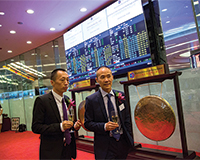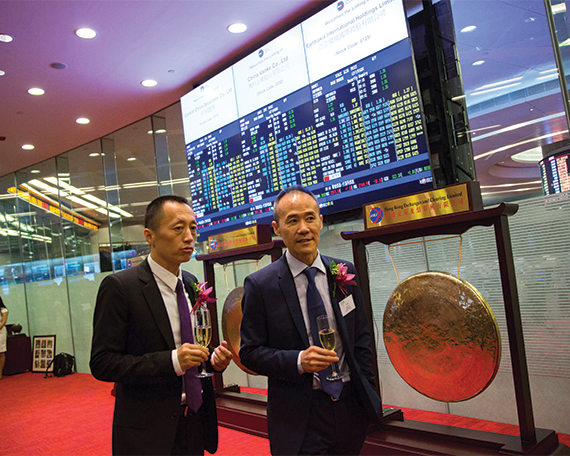China Vanke built roughly 150,000 houses in mainland China last year. That is comfortably more than 10 times the annual number of houses sold by Britain’s biggest house builder, Barratt Developments, in 2013-14. In fact, it exceeds the total number of houses completed in the whole of the UK last year – 141,000, according to the Office of National Statistics.
One could argue that this isn’t necessarily a fair comparison. You are looking at two countries with wildly different-sized land masses and populations. But this company isn’t just colossal by UK standards. It is the biggest there is based on Chinese proportions, and that’s really saying something.
The country’s biggest residential developer has sailed into the highest echelons of the top 100 global investors league, coming in at number four with an increase in assets from $60.3bn (£39.6bn) to $79.2bn.
Furthermore, China Vanke’s interim results for 2014 revealed it had become the first Chinese developer to top RMB100bn (£10.8bn) of sales in half a year, despite the sharp slowdown in the country’s housing market.
In the company’s first UK interview, head of global strategy, investments and new business development, Charles Ma, and newly appointed managing director for the UK, Lily Lin, explain their plan for London expansion.
Relentless rise
Founded in 1984 by chairman Wang Shi (pictured above, right, with president Yu Laing, at the company’s listing in Hong Kong last year) in the south China city of Shenzhen, China Vanke’s rise has been relentless. Like many Chinese property companies, it started out as a conglomerate, selling everything from men’s suits to bottled water. But in the 1990s it began to specialise in property development, riding the wave of capital investment that has fuelled China’s real estate boom over the past two decades.
“The approach to London and the UK will be similar to what the company has done in the US, at least in the beginning,” says Lin, who joined China Vanke from UBS in London at the start of this year.
In broad terms, that will mean seeking out residential and mixed-use development opportunities, initially in central London, which offer a reasonable scale of roughly£40m, according to Lin.
Doing things differently
And in contrast to the approach taken by some of China Vanke’s homeland competitors, development will be carried out with the help of an experienced joint venture partner with properties aimed at the local market.
Charles Ma, who heads China Vanke’s international business, says the company is “aware” of the political rhetoric in the UK, where the sale of London flats to overseas buyers has become a particularly contentious issue [see account of a Hong Kong property exhibition, p38]. But he insists that the planned domestic sales strategy is about good business much more than it is about good politics.
“The reason is we want to have a very sustainable strategy in the long term and that means we want to create a product that works well in that local market,” he says. “From our perspective, selling local developments all to international buyers is just not a sustainable strategy in any market.”
In some ways it might be surprising that China Vanke is only just entering the UK market, given that the Chinese downturn has already prompted so many of its peers to diversify in London.
It is not because the company has suffered from a paucity of opportunities. It has already held meetings with several major UK developers with a view to establishing local partnerships.
And there has been “no lack of shiny PDFs” for London developments sites presented to it either, according to Lin.
In slow and steady juggernaut fashion, the giant company has simply taken its time to prepare to enter the UK market.
But with a London representative now in place and a UK company already established, China Vanke is finally set to make a splash in London and, given its size, it is reasonable to expect it to be a big one.












